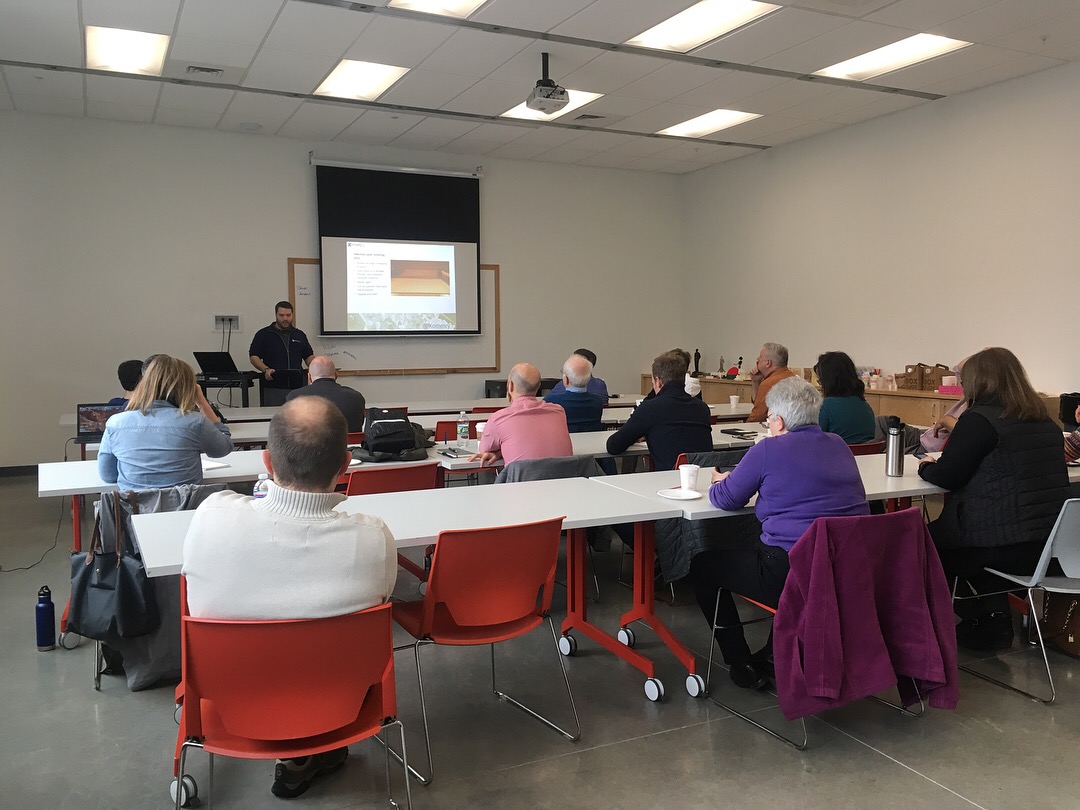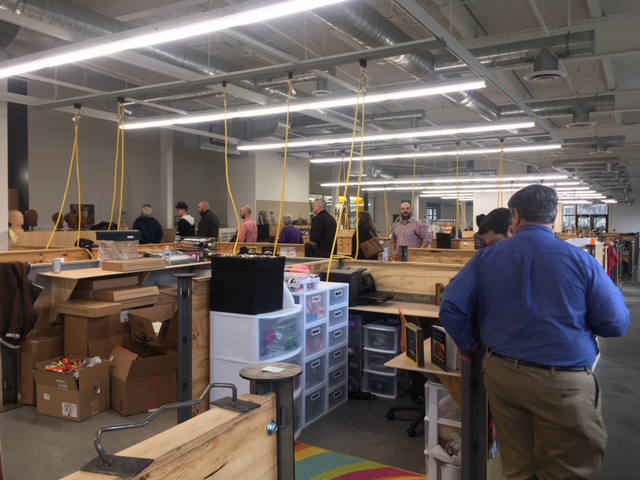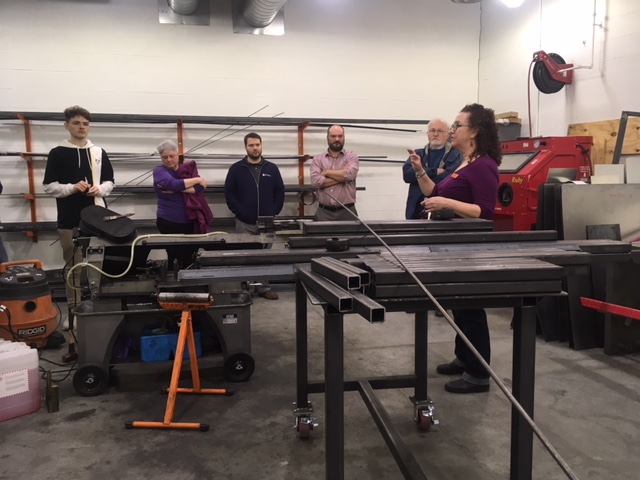On February 24th APT DC took over Open Works in downtown Baltimore to learn about new and different digital fabrication techniques. The following are just a few takeaways from each of the wonderful speakers:
Jordan Greco from Xometry, Inc. "3D printing Technologies and Applications"
· 3D printing can be used for both inexpensive rapid prototyping (to test ideas) and manufacturing processes (to create jigs/one-offs)
· Many museums/collections now using 3D printing to create copies of artifacts for display
· Several types of 3D printing:
o Selective Laser Sintering (SLS) - allows a high level of complexity in the object
o Fused Deposition Modeling (FDM) - most common type of 3D printing, but not good for small details
o Stereolithography (SLA) and Polyjet (PJ3D) - Good surface finish, but not durable; can print in a variety of materials
o Direct Metal Laser Sintering (DMLS) - Prints using a fine metal powder; requires more intensive safety equipment
Joe Nicoli from Direct Dimensions "Digital Restoration"
· Many types of laser scanners available to scan everything from a landscape to a building to a small object
· From the scan, can create 3D models that can be scaled to any size
· Have used SLS 3D printing before to create building elements that have been installed (like a ceiling medallion) or for reference for the artisan's use
· When scanning an element for restoration, they often use their 3D artists to "restore" the scanned model element and manipulate the 3D model to match the original design intent
Sean Wise from Repliform, Inc. "Tangible Artifacts from Electroplated 3D Printed Parts"
· 3D printed objects can be electroplated to make them durable, strong, and less flammable
· This is particularly useful when creating replicas of artifacts and/or when creating visually accessible exhibit designs
· Electroplating can also be used to add cosmetic finishes to 3D printed designs



Thank you to all of our speakers and Open Works for hosting and giving us a tour!